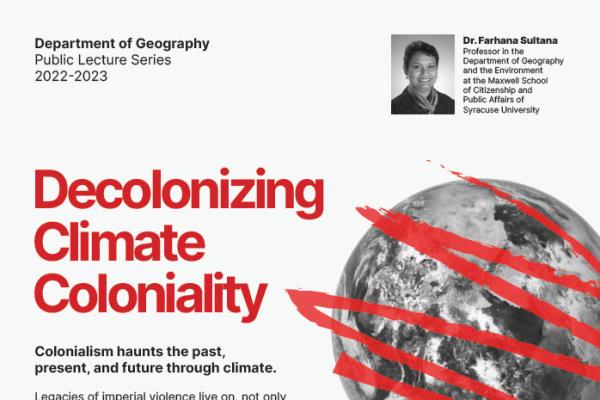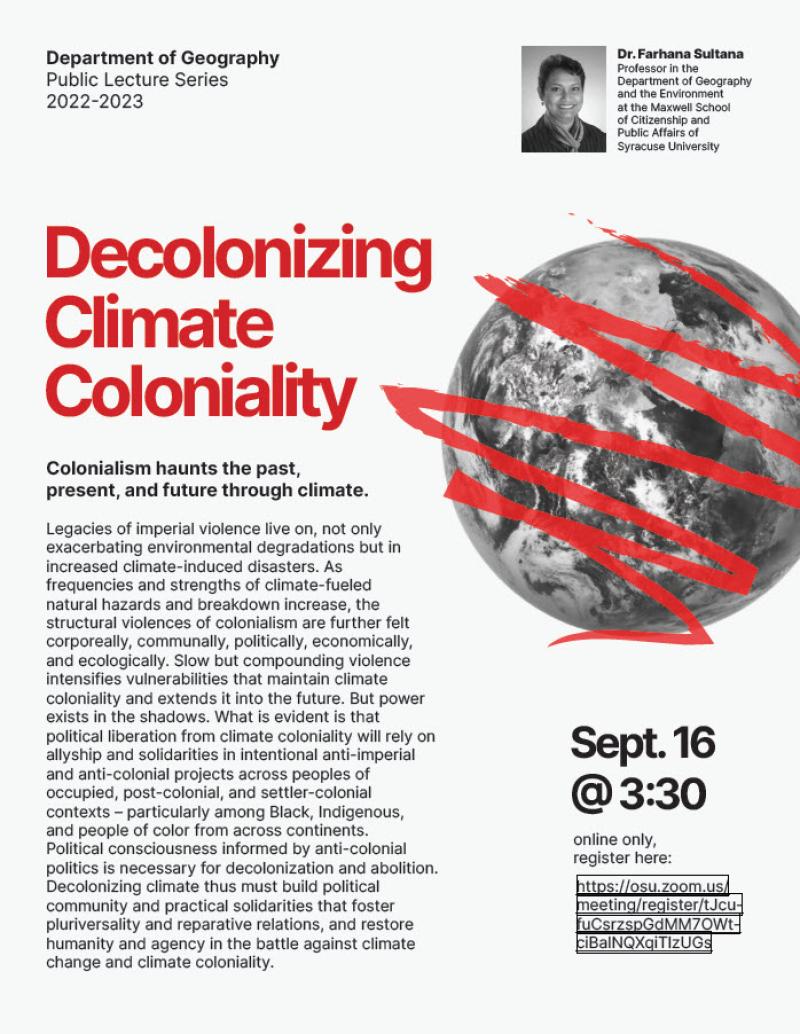
Dr. Farhana Sultana Professor in the Department of Geography and the Environment at the Maxwell School of Citizenship and Public Affairs of Syracuse University
Decolonizing Climate Coloniality
Abstract: Colonialism haunts the past, present, and future through climate. Legacies of imperial violence live on, not only exacerbating environmental degradations but in increased climate-induced disasters. As frequencies and strengths of climate-fueled natural hazards and breakdown increase, the structural violences of colonialism are further felt corporeally, communally, politically, economically, and ecologically. Slow but compounding violence intensifies vulnerabilities that maintain climate coloniality and extends it into the future. But power exists in the shadows. What is evident is that political liberation from climate coloniality will rely on allyship and solidarities in intentional anti-imperial and anti-colonial projects across peoples of occupied, post-colonial, and settler-colonial contexts – particularly among Black, Indigenous, and people of color from across continents. Political consciousness informed by anti-colonial politics is necessary for decolonization and abolition. Decolonizing climate thus must build political community and practical solidarities that foster pluriversality and reparative relations, and restore humanity and agency in the battle against climate change and climate coloniality.

